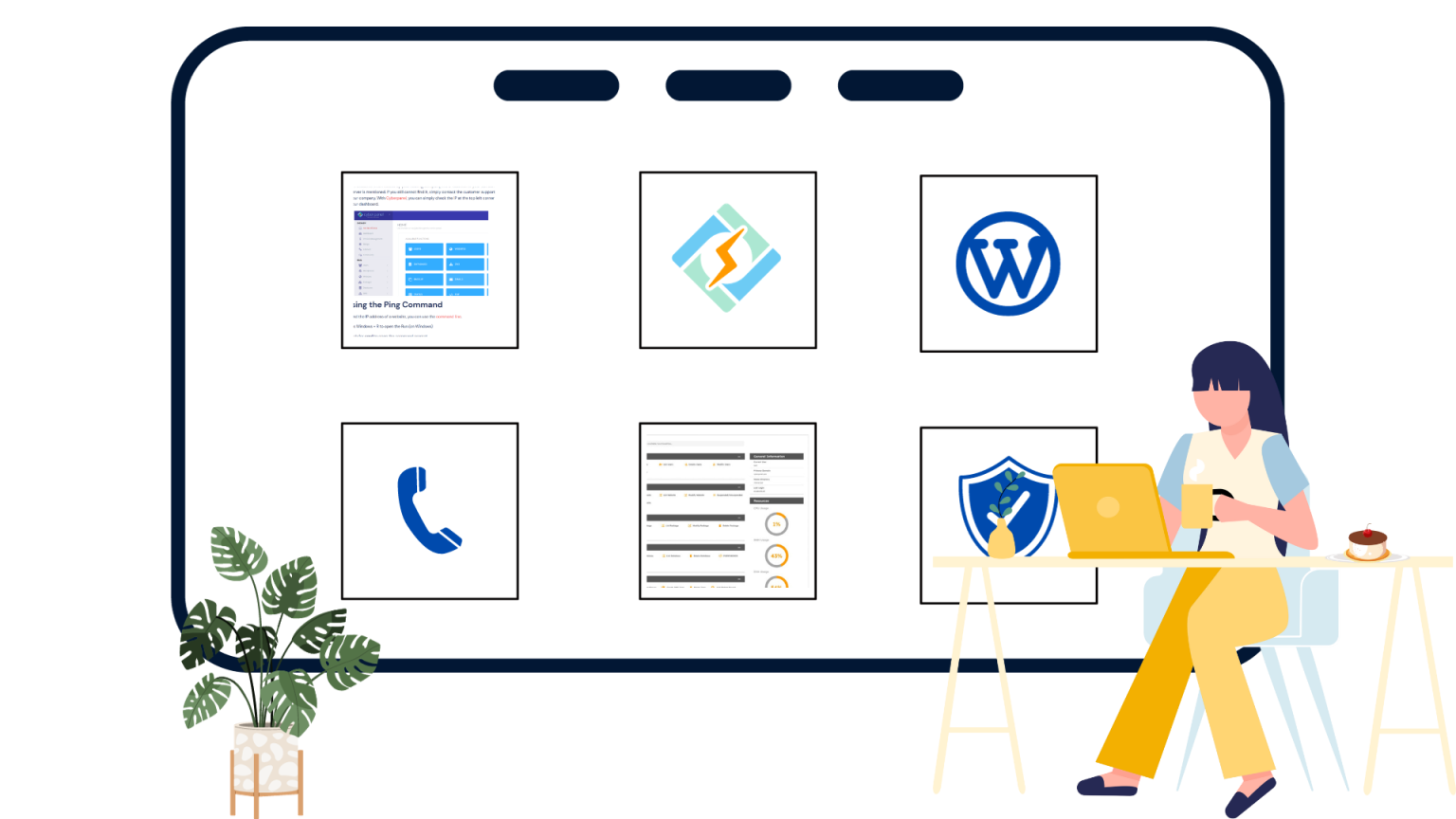Many people use their smartphones to go online. Your mobile website is really important for connecting with your audience. But what if it’s too slow? How can you know if it’s slow on phones? These questions show why WordPress mobile optimization is so important.
Why does it matter to make your site good for phones? And how can you make it load faster for people on phones? According to Google if your site takes more than five seconds to load, 90% of people might leave right away. Think about all the work you’ve done to get people to your site – it’s really disappointing if they leave because it’s too slow. It’s like throwing away all the time and effort you’ve put in.
So, making your WordPress layout mobile-friendly should be your primary focus. Implementing responsive web design guarantees that visitors can view and navigate your site on any device. Let’s delve into some effective strategies for optimizing WordPress for mobile usage.
What is Mobile Optimization?
Mobile optimization refers to the process of adapting a website or digital content to ensure optimal performance, usability, and display on mobile devices such as smartphones and tablets. WordPress mobile optimization aims to provide users with a seamless and enjoyable browsing experience on their mobile devices, improving factors such as page load speed, readability, and ease of navigation.
It involves techniques such as responsive web design, optimizing images and multimedia content for mobile consumption, implementing mobile-friendly navigation menus, and ensuring fast loading times. By prioritizing mobile optimization, website owners can enhance user engagement, increase mobile traffic, and improve search engine rankings.
Understanding WordPress Mobile Optimization
WordPress Mobile Optimization encompasses the techniques and strategies employed to enhance the performance and user experience of a WordPress website on mobile devices. Achieving mobile compatibility requires a multifaceted approach, incorporating practices such as responsive design, image optimization, compression of JavaScript and CSS files, and streamlining navigation menus. By implementing these methods, website owners can ensure that their WordPress sites deliver seamless and engaging experiences for visitors accessing them on smartphones and tablets.
Get exclusive access to all things tech-savvy, and be the first to receive
the latest updates directly in your inbox.
Why Is Your WordPress Site Slow on Mobile?
If you’ve noticed that your WordPress site is sluggish when accessed from mobile devices, you’re not alone. Several factors can contribute to this slowdown, impacting the user experience and potentially driving visitors away. Here are some common reasons why your WordPress site might be slow on mobile and what is lacking in your WordPress mobile optimization.
Unoptimized Images
Large, uncompressed images can significantly slow down page loading times on mobile devices. When images are not properly optimized for the web, they consume more bandwidth and take longer to download, especially on slower mobile connections.
Too Many Plugins
While plugins can add functionality and features to your WordPress site, using too many of them can also weigh it down. Each plugin adds extra code and requests to your site, which can increase loading times, particularly on mobile devices with limited resources.
Bloated Themes
Some WordPress themes come with excessive features, scripts, and stylesheets that aren’t necessary for your site. Using a bloated theme can lead to longer loading times on mobile devices, as they have to download and render more content than needed.
Lack of Caching
Caching helps in optimizing your WordPress site by storing static versions of your pages and serving them to users instead of generating them dynamically every time. Without caching, mobile users may experience slower loading times, especially for content-heavy pages.
Poor Hosting Performance
The performance of your web hosting provider can also impact WordPress mobile optimization i.e. the speed of your WordPress site on mobile. If your hosting server is slow or overloaded, it can result in delayed responses and longer loading times for mobile users.
Render-Blocking JavaScript and CSS
JavaScript and CSS files that are render-blocking can prevent the browser from rendering the page until they have been fully loaded. This can lead to delays in displaying content, particularly on mobile devices with slower processors and network connections.
Excessive Redirects
Redirects can add extra HTTP requests and increase loading times, especially on mobile networks with higher latency. Avoid excessive redirects and optimize your site’s URL structure to improve your WordPress mobile optimization.
How to Test the Speed of Your Mobile Website?
Before enhancing the speed of your mobile site for WordPress mobile optimization, it’s essential to evaluate its existing performance. This involves gauging the website’s condition and the speed encountered by mobile visitors. Testing the speed of your mobile website is crucial for ensuring a good user experience and search engine rankings. Here are some tools you can use to test the speed of your mobile website:
Google PageSpeed Insights
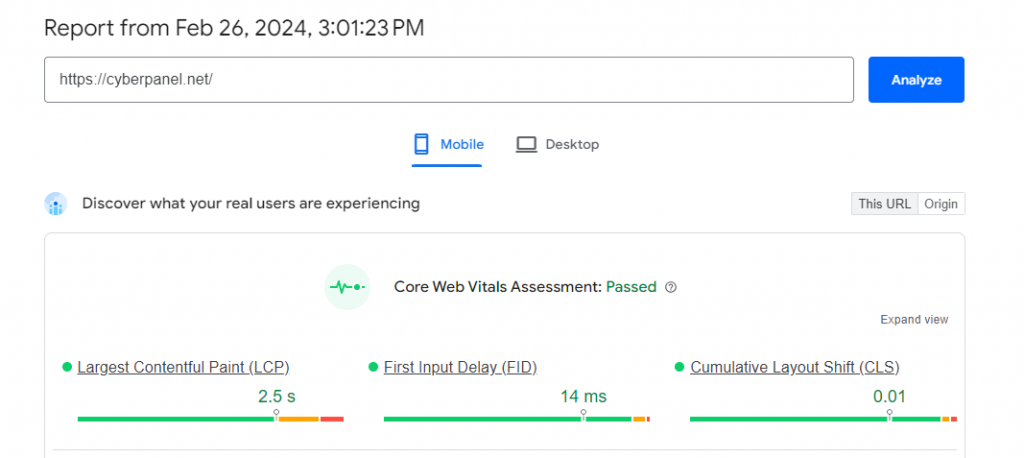
This tool by Google analyzes the content of a web page and generates suggestions for WordPress mobile optimization. It provides both lab and field data about a page to make that page faster. You can access it through a web browser or via the Google PageSpeed Insights API.

Google Lighthouse
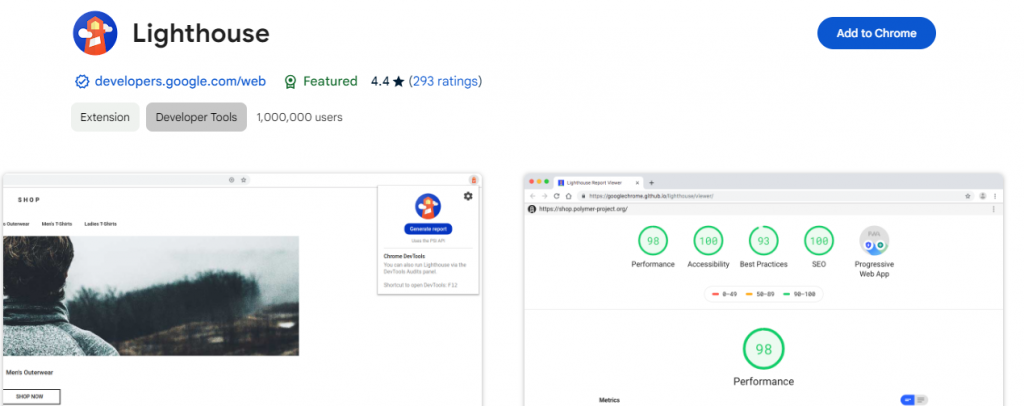
Lighthouse is an open-source tool from Google that can be run against any web page. It audits web pages for performance, accessibility, progressive web apps, SEO, and more. It’s integrated into Google Chrome’s DevTools, or you can run it from the command line.
WebPageTest
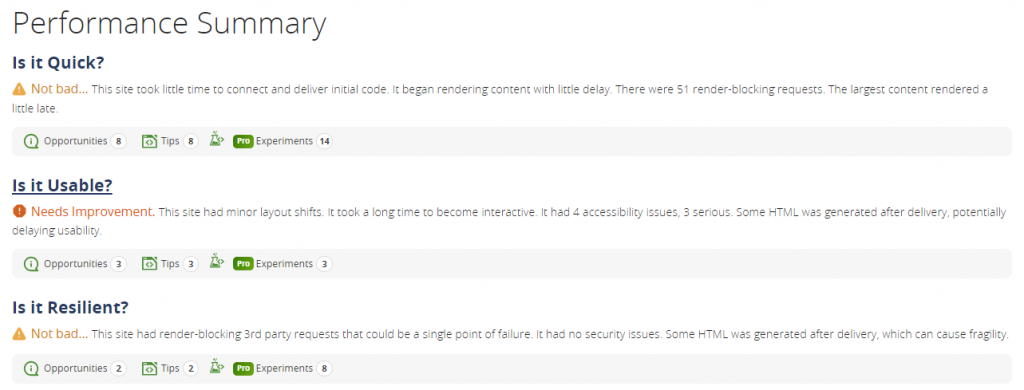
WebPageTest is another free tool that provides WordPress mobile optimization. It allows you to test your website’s speed from multiple locations around the world using real browsers like Chrome, Firefox, and Internet Explorer.
GTmetrix

GTmetrix is a free tool that analyzes your website’s speed performance for WordPress mobile optimization. It provides both PageSpeed and YSlow scores along with detailed recommendations on how to improve page load time.
Lighthouse Metrics

This tool offers excellent user-friendliness for testing your WordPress mobile optimization across various mobile devices and locations. This aspect holds particular significance if you aim to gauge your mobile site’s performance in both the US and Australia!
Yellow Lab Tools
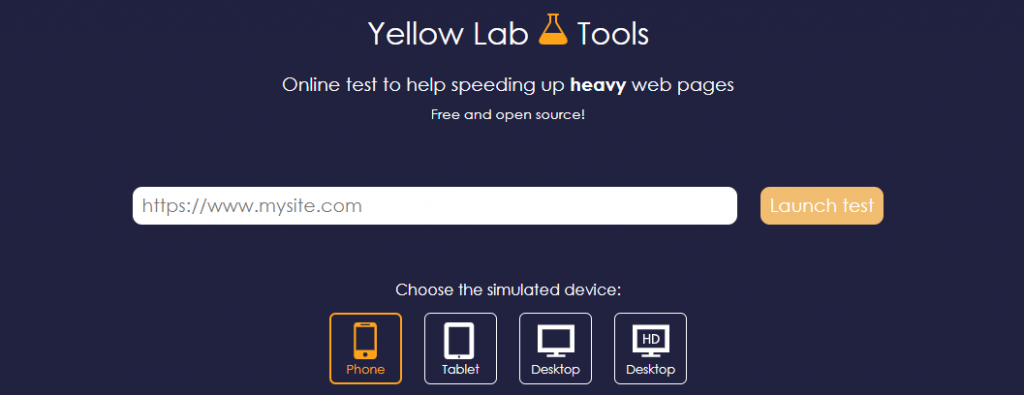
Yellow Lab Tools is an open-source tool that runs on your local machine or server. It provides detailed suggestions on how to improve your website’s performance, including recommendations on JavaScript, CSS, and image optimization.
Strategies for WordPress Mobile Optimization?
Optimizing your WordPress mobile site for speed is crucial for providing a seamless user experience. Here are steps to achieve that.
Choose a Lightweight Theme

Opt for a lightweight and mobile-responsive theme like Astra, Ocean WP, and Sydney. Themes with minimal design and clean code can significantly improve loading times on mobile devices and optimize your WordPress for mobile.
Optimize Images

Compress and optimize images to reduce their file size without compromising quality. Use plugins like WP Smush or EWWW Image Optimizer to automate this process.
Enable Caching

Utilize caching plugins like WP Super Cache or W3 Total Cache to generate static HTML files for your WordPress mobile optimization, reducing server load and improving loading times for returning visitors.
Minify CSS and JavaScript
Minify and combine CSS and JavaScript files to reduce the number of HTTP requests and improve loading speed. Plugins like Autoptimize can handle this task automatically.
Utilize a Content Delivery Network (CDN)
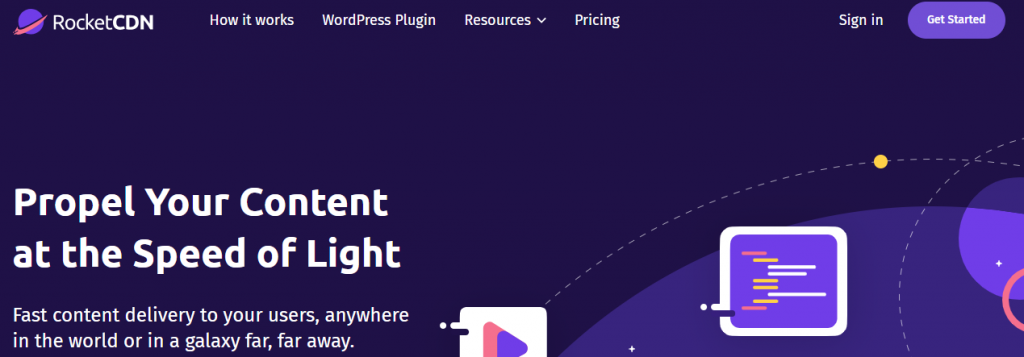
Implement a CDN to deliver your website’s static files (images, CSS, JavaScript) from servers closer to your visitors, reducing latency, speeding up page load times, and improving WordPress mobile optimization for your site. Some popular CDNs are:
- Cloudflare
- StackPath
- RocketCDN
- Google Cloud Platform
- Fastly
Optimize Fonts
Limit the number of fonts and font weights used on your site. Also, consider using system fonts or hosting fonts locally to reduce external requests.
Optimize Server Performance
Choose a reliable hosting provider for WordPress mobile optimization. Ensure that your server response times are low and that you’re using the latest PHP version.
Decrease Page Weight

A lighter page loads faster on mobile devices. Excessive page weight often results from elements like videos, images, scripts, styles, and fonts. To reduce page weight, optimize images, enable text compression (GZIP), and consolidate/minify code. WP Rocket simplifies this process by facilitating GZIP implementation and the minification and compression of CSS and JavaScript files with just a few clicks.
WordPress Mobile Optimization Plugins
WordPress mobile optimization plugins are essential tools for ensuring that your website performs well and provides an excellent user experience on mobile devices. These plugins offer various features to improve mobile responsiveness, speed, and overall usability. Here are some popular WordPress mobile optimization plugins:
AMP for WP (Accelerated Mobile Pages)

This plugin enables the creation of Accelerated Mobile Pages (AMP) versions of your website’s content for WordPress mobile optimization. AMP pages load almost instantly on mobile devices, enhancing user experience and potentially improving search engine rankings.
WPtouch

WPtouch is a mobile plugin for WordPress mobile optimization that automatically adds a mobile-friendly theme to your website. It offers customization options to tailor the mobile experience and ensures that your site looks great on all mobile devices.
Jetpack by WordPress.com

Jetpack includes a mobile theme that automatically optimizes your WordPress for mobile devices. It also offers features like lazy loading images, CDN for images, and downtime monitoring to enhance mobile performance and reliability.
WP Mobile Menu

This plugin creates a user-friendly mobile menu for your WordPress site. It allows you to customize the mobile menu’s appearance and behavior, ensuring easy navigation on smaller screens.
WP Mobile Detect

WP Mobile Detect helps you detect mobile devices and redirect them to a mobile-friendly version of your website. It provides options for customization based on device type, ensuring a seamless experience for mobile users and hence optimizing your WordPress site for mobile.
WPTouch Mobile Plugin

WPTouch is a mobile plugin that automatically adds a simple and elegant mobile theme to your WordPress website. It provides customization options, mobile advertising support, and compatibility with various plugins.
FAQs
Why is mobile optimization important for WordPress websites?
Mobile optimization is important for WordPress websites because an increasing number of users access the internet through mobile devices. Optimizing your site for mobile ensures faster loading times, better user experience, higher search engine rankings, and increased audience reach.
How can I tell if my WordPress website is mobile-friendly?
You can use tools like Google’s Mobile-Friendly Test or manually test your website on different mobile devices and screen sizes to determine its mobile-friendliness. Look for responsive design, fast loading times, and easy navigation on mobile devices.
Do I need to create a separate mobile version of my WordPress website?
It’s not necessary to create a separate mobile version of your WordPress website if you use a responsive theme that automatically adjusts to different screen sizes. However, you may choose to implement mobile-specific optimizations such as AMP to further enhance mobile performance.
How often should I test my WordPress website for mobile optimization?
It’s recommended to regularly test your WordPress website for mobile optimization, especially after making significant changes or updates. You can use tools like Google Analytics to monitor mobile traffic and performance metrics and adjust your optimization strategies accordingly.
What are Accelerated Mobile Pages (AMP), and how do they benefit WordPress websites?
Accelerated Mobile Pages (AMP) are lightweight versions of web pages optimized for fast loading on mobile devices. Implementing AMP on your WordPress website can significantly improve loading times, user experience, and search engine rankings for mobile users.
Conclusion
WordPress mobile optimization is essential for delivering a seamless, fast, and engaging user experience to mobile visitors. By implementing the strategies outlined in this article, you can ensure that your WordPress website is fully optimized for mobile devices, thereby attracting more visitors, improving search engine rankings, and achieving your online objectives. Remember that mobile optimization is an ongoing process, so stay vigilant, adapt to changes in technology and user behavior, and continually strive to provide the best possible experience for your mobile audience.


